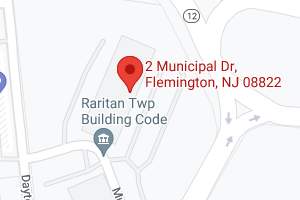Victims and witnesses are indispensable to the criminal justice system's ability to function. The Raritan Township Police Department needs cooperation in reporting crime and in helping to identify, apprehend and convict perpetrators of crime. In order to accomplish this very complex task, the Raritan Township Police Department is committed to the Crime Victim's Bill of Rights. (N.J.S.A. 52:4B-36).
- To be treated with dignity and compassion by the criminal justice system;
- To be informed about the criminal justice process;
- To be free from intimidation;
- To have inconveniences associated with participation minimized;
- To make at least one telephone call;
- To medical assistance if it appears necessary;
- To be notified if presence in court is not needed;
- To be informed about remedies, financial assistance and social services;
- To be compensated for their loss whenever possible;
- To be provided a secure, but not necessarily separate, waiting area;
- To be advised of case progress and final disposition;
- To the prompt return of property when no longer needed as evidence;
- To submit a written victim-impact statement;
- To make an oral statement directly to the sentencing court.
Explanation of the Criminal Justice System
Charging and Arrest: The arrest is the act of being taken into custody to be formally charged with a crime. In a constitutional sense, an arrest is a seizure of the person. The charging is when a defendant is formally charged with a specific crime or crimes.
Initial Court Appearance: The first processing stage after arrest, in which the defendant is taken before a judge. This is also called the presentment, first arraignment, or preliminary arraignment. Its purpose is to allow the court to inform defendants of their constitutional rights, to make arrangements to supply indigent defendants with free counsel, and to set bail. The victim or witness is not normally required at this proceeding.
Bail Hearing: Bail is the financial or non-financial conditions under which a defendant may be released while awaiting arraignment and the trial stage. A defendant may be released on his own recognizance which is the non-monetary release on bail of "good risk" defendants who are recommended for unconditional release, based on their social ties to the community.
Preliminary Hearing: The preliminary hearing is a hearing before a court, often held in criminal cases to protect the defendant against unwarranted prosecution and detention by requiring the state to establish probable cause that the defendant did, in fact, commit a crime. This step is normally waived by the defendant. If a preliminary hearing is to be held, your attendance is going to be necessary.
Pretrial Intervention: Pretrial intervention is a procedure for a first offense defendant charged with certain crimes, to apply for a conditional discharge. This is usually a probation period when completed successfully, would mean the complaint against the defendant is completed, and no further action is to be taken by the court system.
Grand Jury: A group of 16 to 23 citizens who decide whether there is probable cause to indict the defendant on the criminal charges contained in the bill of indictment prepared by the prosecutor. The defendant enters pleas at arraignment to the charges specified in the Grand Jury indictment.
Trial: Trial is the adversary method of proving in court, according to the Rules of Evidence, that the defendant is guilty of the criminal charges beyond a reasonable doubt. The defendant has a choice of trial by jury or a trial just with a judge, in which case the judge would decide the case based on the evidence presented. A jury trial is a legal proceeding in which the decision regarding the defendant's guilt or innocence is made by a group of 6 to 12 citizens (Petit Jury) and expressed in a verdict. Your attendance will be required at the trial.
Verdict: The verdict is the decision by a Petit Jury, at the conclusion of a trial, that the defendant is guilty or not guilty beyond a reasonable doubt.
Sentencing: Upon conviction, the imposition of criminal penalties for violating the law. Your attendance is not required.




